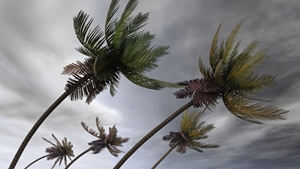
Hurricanes, wildfires and other natural disasters can not only wreak havoc on homes and infrastructure, they can expose victims to identity theft. Identity thieves see disasters as an opportunity to steal personal information from victims.
Important documents, credit and debit cards and other sensitive data can be washed away when a home is hit by a hurricane, putting this information at risk of landing in the hands of a criminal. In the event of a wildfire, too, when families may be forced to abandon their home, there are things you can do to prepare for natural disasters and protect your personal information from being exposed in such an event.
Hurricanes
The National Oceanic and Atmospheric Administration predicts between six and nine hurricanes this season, with as many of five becoming major storms and winds stronger than 110 mph. NOAA also says there is a 70 percent chance this 2013 hurricane season will be busier than normal, CBS reported.
As we reach the peak of hurricane season, Americans will want to take several steps to make sure they protect against identity theft if they are hit by a storm.
Originals of important documents should be stored outside the home in a secure place, like a security deposit box at a bank. Copies can go in a portable lock box if you and your family are forced to evacuate your home quickly, Tech News Daily reported. Inside should be copies of IDs, passports, and medical and insurance information, along with Social Security cards and any other important legal documents.
Backing up computer files on a portable hard drive or in a cloud server is also a smart idea. These services are typically easy to use and affordable.
Wildfires
Wildfire season in the United States is also worse than normal. In California alone, 43 percent more wildfires have hit the state this year than last, damaging twice as many acres as in 2012, The Associated Press reported.
Like with hurricane preparation, families should have an ID theft protection plan in place should they be forced to their homes as wildfires spread, which includes storing important documents in a safe place. Among other smart identity theft tips is asking the U.S. Postal Service to hold off delivering mail to your home for a time being to avoid having your mailbox full with personal information that ID thieves can get ahold of.
After any natural disaster, Americans should be wary of anyone contacting them saying they are a company that has lost their personal data. Criminals will target their phishing scams to devastated areas and victims after a disaster. Scammers may also pretend to be a charity asking for donations for restoration work following a disaster. Make sure to research the charity before giving away money or personal information.